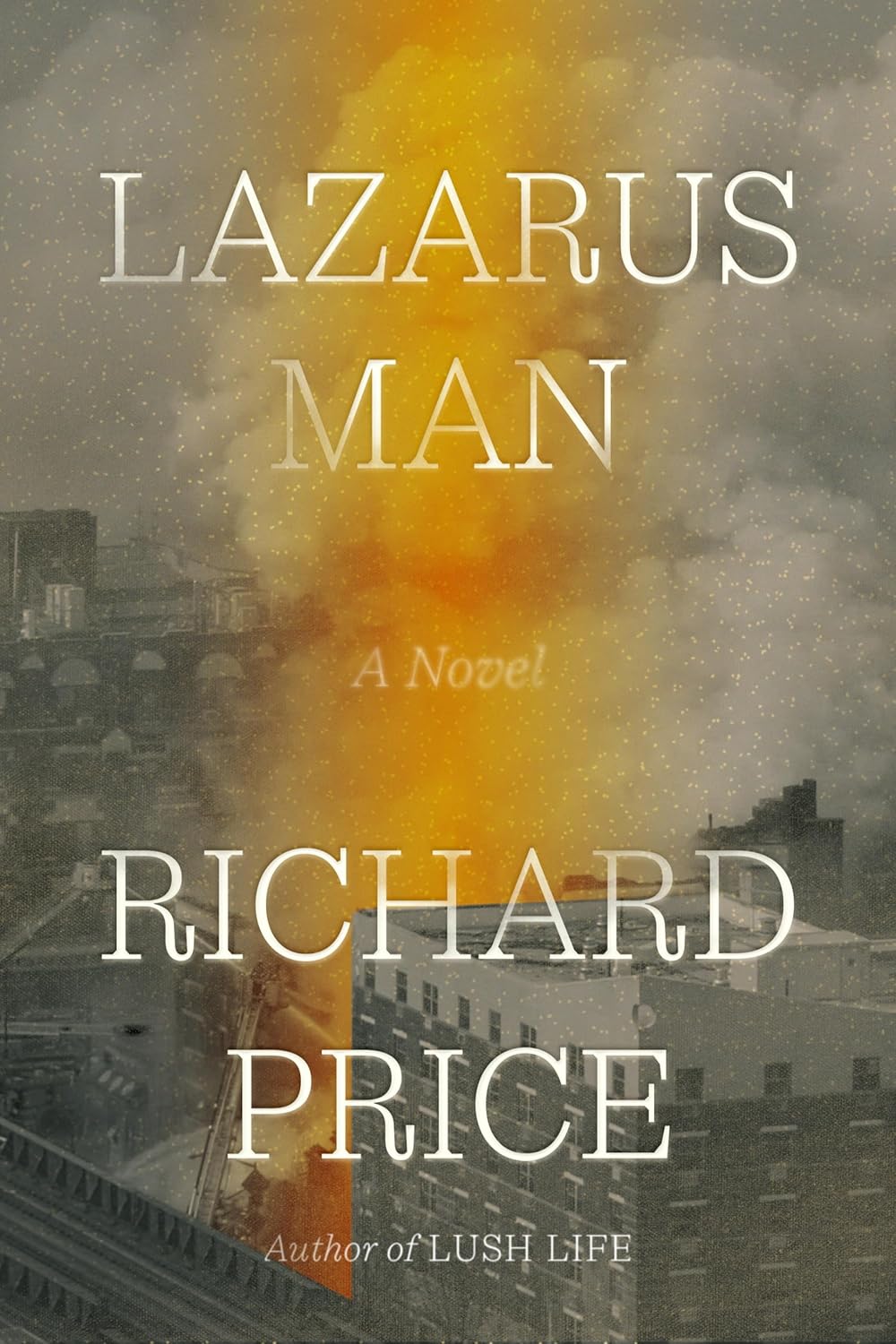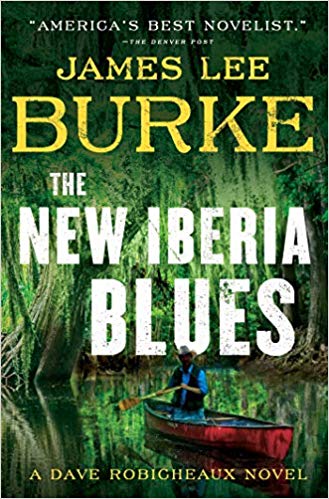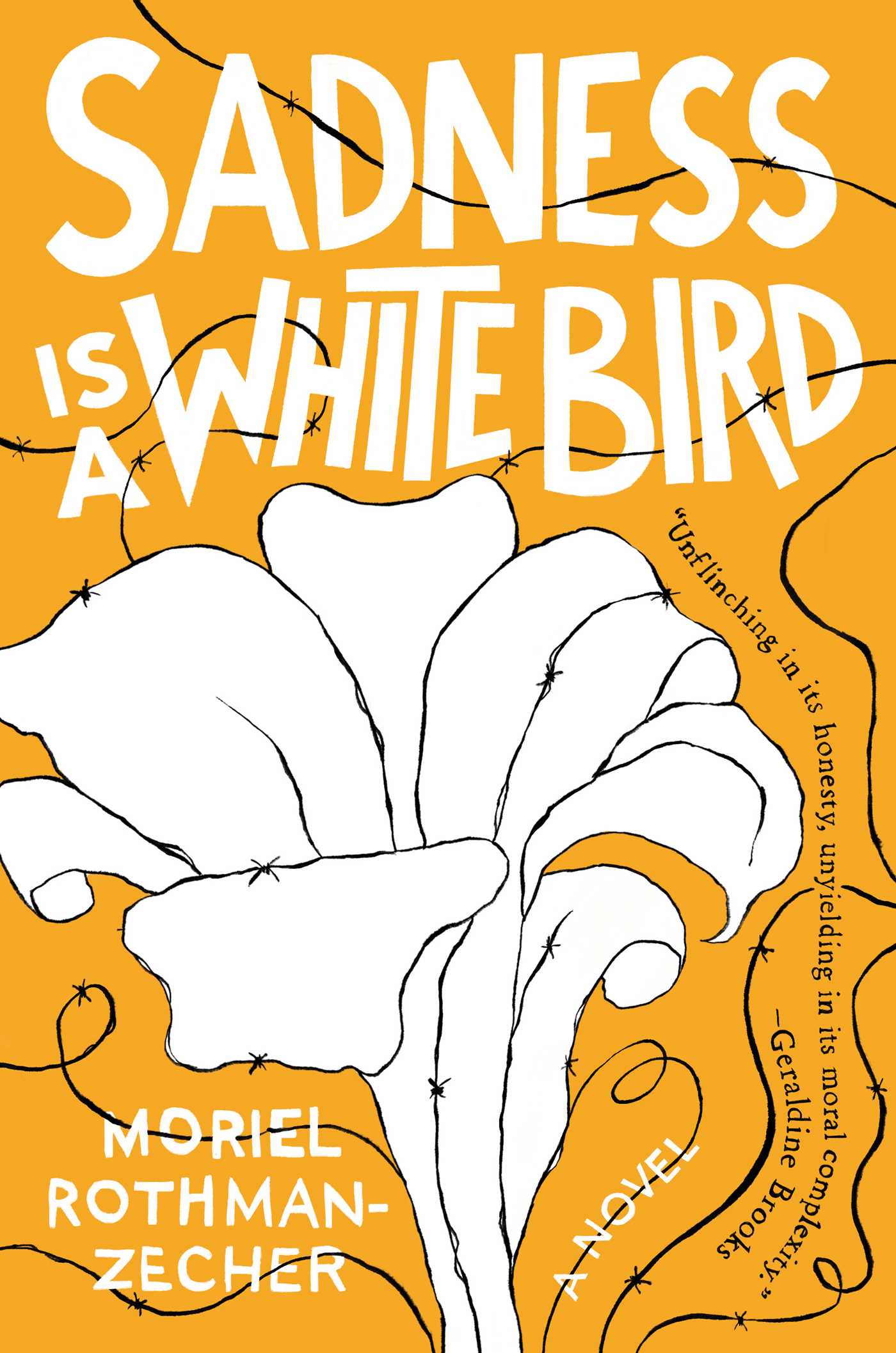Lazarus Man: A Novel
- By Richard Price
- Farrar, Straus and Giroux
- 352 pp.
- Reviewed by Chris Rutledge
- December 11, 2024
Beleaguered New Yorkers find succor following a tenement collapse.

Lazarus Man is the latest from author and screenwriter Richard Price, known for such novels as Clockers (which was made into a movie by Spike Lee and inspired the HBO series “The Wire”). Here, he maintains his reputation for snappy dialogue, riveting plot development, and page-turning thrills. He also captures a 2008 New York City in which streetwise hustlers and everyday heroes muddle through lives more workaday than lucrative, and made exciting less by their own actions than by the vibrancy of Manhattan itself.
Although the narrative contains many threads, the central one is an East Harlem tenement collapse. Unfettered underground construction and lax oversight have led to a walkup being rendered unstable. Out of the blue, we hear a “tremendous window-rattling boom,” followed by a “near-impenetrable grey-white cloud…a mix of hot tar, cement dust, and burning trash.” In a city still reeling from 9/11, this will impact far more people than just those on the block.
Lazarus Man is, above all, a story about survivors — of falling buildings, of bad upbringings, of disappointing marriages — and a reminder that, with enough perseverance, you can make it through anything. Anthony is the most obvious example of this. He is the “Lazarus Man” of the book’s title, found buried in the rubble but still alive days after the collapse. Rescuers are stunned not just that they missed him during their initial search, but that he survived in the wreckage.
Anthony is someone who needs a fresh start. We encounter him when he is “two years unemployed, two years separated from his wife and stepdaughter, six months into cocaine sobriety, and recently moved into his late parents’ apartment.” Due to his newfound fame as a man raised from the dead, he’s given the chance to redeem himself.
East Harlem, a community marked by violence and senseless death, is filled with folks who need a positive, optimistic message that they, too, can survive, and Anthony proves to be the perfect messenger. He is soon called upon to speak at funerals and memorial services to deliver his words of hope that any of us can, with enough faith, “rise from the dead.”
During his time as an inspirational speaker, Anthony and we meet other “New York characters,” to whom Price gives much more depth than you’d find in a Big Apple potboiler. There’s Mary, a “trim raw-faced woman of forty-two” with “cropped red hair rapidly turning the color of steel.” A cop on the community-affairs beat, Mary is struggling to extract herself from a failed marriage and a friends-with-benefits situation with a colleague. She’s spinning her wheels in her career and her personal life. Either she doesn’t mind this or lacks the imagination needed to expand her world.
Then there’s Felix, a photographer nicknamed “Monster” by the stoop-sitters on his block because they once saw him guzzling the well-known energy drink. He sleepwalks through a job taking video for the Parks Department, dreaming of his big break making films. His ever-present camera is an extension of himself and enables him to document the lives of his neighbors.
We also meet Royal, the owner of a failing funeral home, reduced to serving as “a tradesman, a freelance mortician” who picks up bodies for “another funeral home which was, gallingly (too) busy” to do such scut work itself. Royal is fighting off his brothers, who’d love to sell the business and property for remunerative purposes. His own stubbornness and pride keep him going. In a neighborhood such as his, there are certainly enough bodies to be buried. Families simply don’t have the resources to do so.
Any good Gotham novel sets up a wide-ranging cast and then finds a reason to pull them together. Price uses the pervasive violence in this part of Harlem for that purpose: Anthony speaks the word of God at funerals, which are conducted by Royal and recorded by Felix, all while Mary looks on to keep the peace. The characters bounce off each other in a way that feels true. In a city of 8 million people, somehow no one is ever a stranger.
Besides the exciting plot, Price does a fine job overcoming what could be a devastating failure: He manages to write diverse characters without relying on stereotypes or, worse, demeaning vocal patterns. It’s easy to slip into caricature when creating characters outside your own race and background, yet the author gives his depth and individuality.
With Lazarus Man, Price has successfully added to the corpus of New York crime novels, crafting a compelling and driven narrative that has you engaged while keeping you guessing what comes next. It’s meatier than a typical “Law and Order” episode and, in accordance with Price’s career to date, will make a fine movie one day.
Chris Rutledge is a husband, father, writer, nonprofit professional, and community member living in Silver Spring, MD. Besides the Independent, his work has appeared in Kirkus Reviews, American Book Review, and countless intemperate Facebook posts, which will surely get him into trouble one day.

